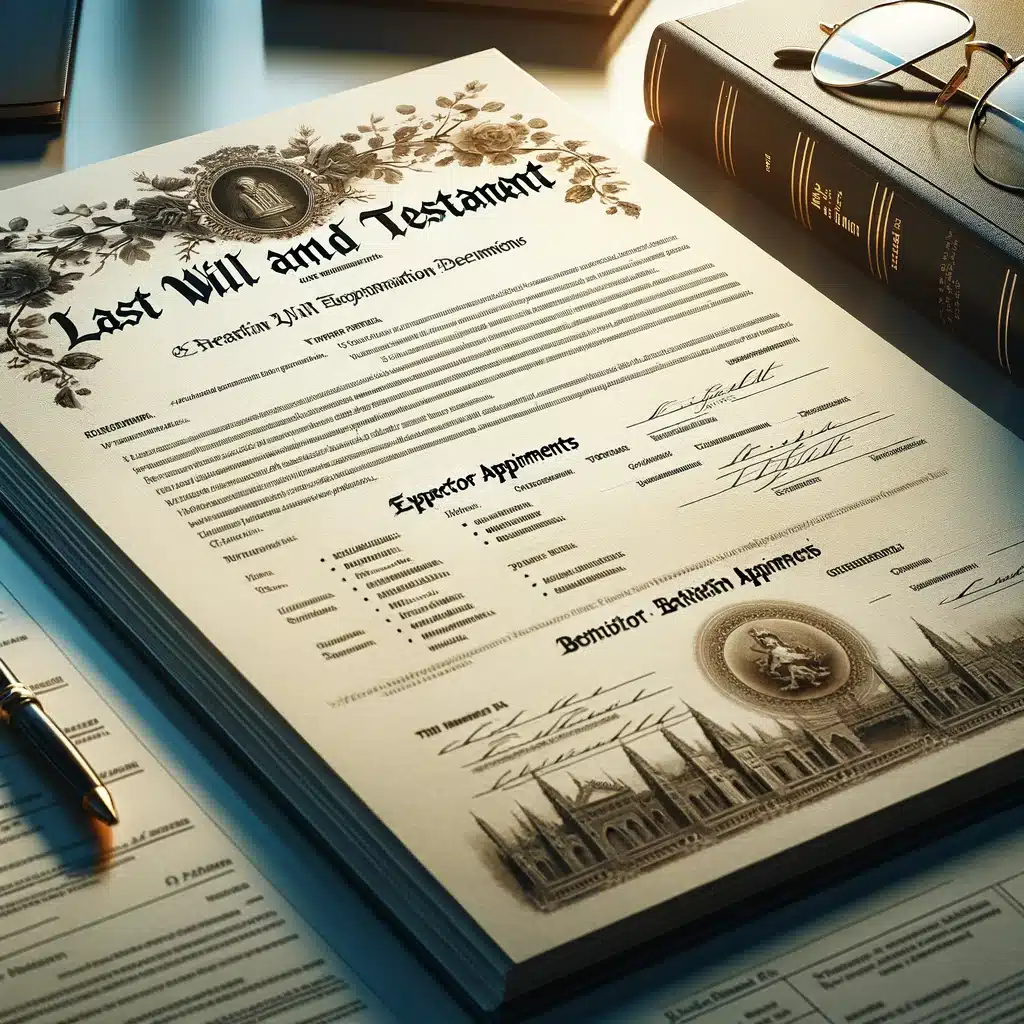Want to navigate the legal labyrinth of probate like a pro and ensure your loved ones don’t get tangled up in a bureaucratic nightmare? Look no further! In this engaging guide, we’ll uncover the secrets to avoiding probate in Texas, saving you time, money, and unnecessary headaches. So, grab a cup of coffee, sit back, and get ready to take charge of your estate planning journey!
Picture this: You’ve spent a lifetime building your wealth, nurturing your assets, and creating a legacy to pass on to your loved ones. You’ve meticulously crafted your dream castle of prosperity, and you want to ensure it seamlessly transitions to the next generation when the time comes. But wait, there’s a potential hurdle on the horizon – the dreaded probate process!
Probate, that mysterious legal labyrinth, often triggers visions of lengthy delays, exorbitant expenses, and family feuds straight out of a soap opera. It’s enough to make anyone’s head spin. But fear not, dear reader! We’re here to guide you through the twists and turns, and reveal the secrets to avoiding probate in the great state of Texas.
Exploring Estate Planning Alternatives in Texas
In this delightful and informative blog post, we’ll take you on a journey through the exciting world of estate planning. We’ll dive deep into the probate process, uncovering its hidden intricacies, and exploring why many Texans choose to steer clear of it. But that’s not all! We’ll introduce you to a range of brilliant alternatives that can save you time, money, and keep those family disputes at bay.
Why endure the seemingly never-ending probate process? With our expert advice and playful tone, we’ll equip you with the knowledge to protect your assets, preserve your privacy, and pave the way for a smooth transition when the time comes. We’ll even sprinkle in some real-life anecdotes and relatable themes to keep you entertained along the way.
So, whether you’re a seasoned estate planning aficionado or just dipping your toes into the exciting world of probate avoidance, this blog post is your ticket to a stress-free journey. Buckle up, dear reader, as we embark on an adventure that will transform the way you approach estate planning in Texas!
Reasons to Keep Reading
Discover the inner workings of the probate process: We’ll demystify the legal jargon and take you on a step-by-step tour of the probate process, so you’ll know exactly what to expect when the time comes.
Unveil the secrets of avoiding probate: Learn about the smart strategies and alternatives that can save you from the clutches of probate. We’ll dive into the fascinating world of living trusts, joint ownership, payable-on-death accounts, and more!
Navigate potential pitfalls and disputes: We won’t shy away from the drama! Explore the common challenges and conflicts that can arise during the probate process, from will contests to creditor claims. Armed with this knowledge, you’ll be well-prepared to handle any hurdles that come your way.
Unlock the power of proactive estate planning: Discover the importance of planning ahead and organizing your affairs to minimize probate complexities. We’ll share expert tips on effective estate administration, including the art of will creation, asset management, and beneficiary designations.
Are you ready to embark on this captivating journey through the realms of probate and estate planning? Then let’s dive right in and unravel the secrets of avoiding probate in the great state of Texas!
Avoiding Probate in Texas: A Comprehensive Guide
When a loved one passes away, the legal process known as probate comes into play. It involves the transfer of the deceased person’s property to their heirs or beneficiaries. However, in the state of Texas, there are instances where probate may not be necessary. Many individuals choose to avoid probate due to its time-consuming and expensive nature. In this article, we will delve into the details of probate in Texas, explore various reasons why people opt to avoid it, and provide valuable insights into alternative strategies for managing estates.

Understanding the Probate Process
Probate, as previously mentioned, is the legal process that takes place after someone’s demise. It encompasses a series of steps that ensure the orderly distribution of assets and the fulfillment of any outstanding obligations. Let’s briefly outline the key stages involved in the probate process:
- Filing the Will: The first step is to file the deceased person’s will with the appropriate court. The court validates the will and appoints an executor or personal representative to oversee the probate proceedings.
- Inventorying Assets: The executor identifies and compiles an inventory of the deceased person’s assets, including bank accounts, investment accounts, real estate properties, vehicles, and personal belongings.
- Notifying Creditors: The executor must notify creditors of the deceased person’s passing, providing them an opportunity to make claims against the estate for any outstanding debts.
- Paying Debts and Taxes: The estate’s debts, including taxes, are settled using the assets of the estate. This includes filing tax returns, paying income taxes, and addressing any estate or inheritance taxes that may be applicable.
- Distributing Assets to Beneficiaries: After all debts and taxes are settled, the remaining assets are distributed to the beneficiaries named in the will or according to intestate succession if there is no will.
Types of Assets Subject to Probate
Probate typically applies to various types of assets that form part of the deceased person’s estate. Common examples of assets subject to probate in Texas include:
- Bank accounts held solely in the deceased person’s name
- Investment accounts registered solely in the deceased person’s name
- Real estate properties owned solely by the deceased person
- Vehicles registered solely in the deceased person’s name
- Personal belongings, such as jewelry, artwork, and collectibles
It is crucial to note that joint ownership, beneficiary designations, or assets held in a living trust may bypass probate for those specific assets.
Intestate Succession: What Happens Without a Will
While having a valid will can simplify the probate process, what happens when someone passes away without a will? In such cases, the process of intestate succession comes into play. Intestate succession refers to the distribution of assets according to state laws when there is no valid will in place.

In Texas, if someone dies without a will, the state’s laws dictate how their assets will be distributed among their heirs. The laws establish a hierarchy of relatives who will inherit the estate, typically starting with the spouse and children. If there are no immediate family members, more distant relatives may be entitled to a share of the estate.
Understanding intestate succession is essential as it sheds light on the default distribution of assets when a will is absent. It emphasizes the importance of creating a will to ensure assets are allocated according to an individual’s wishes.
The Role of the Executor or Personal Representative
In the probate process, an executor or personal representative is appointed to handle the administration of the estate. The executor’s role is vital and involves several responsibilities and duties, including:
- Gathering and managing the assets of the estate.
- Paying debts and taxes owed by the deceased person and the estate.
- Filing necessary tax returns on behalf of the deceased person and the estate.
- Distributing the remaining assets to the beneficiaries as outlined in the will or according to intestate succession laws.
- Addressing any disputes, challenges, or claims that may arise during the probate process.
The executor’s primary duty is to ensure the smooth and lawful administration of the estate, acting in the best interests of the deceased person and their beneficiaries.
Disputes and Challenges in Probate
Probate proceedings can sometimes be contentious, leading to disputes and challenges among family members or interested parties. These conflicts can arise due to various reasons, including disagreements over the validity of the will, concerns regarding asset distribution, or creditor claims against the estate.
Some common disputes that can occur during probate include:
- Will contests: When family members or other interested parties challenge the validity of the deceased person’s will, often alleging undue influence, lack of capacity, or fraud.
- Creditor claims: Creditors may make claims against the estate for outstanding debts, potentially reducing the assets available for distribution to beneficiaries.
- Beneficiary disputes: Disagreements may arise among beneficiaries regarding the interpretation of the will or the distribution of assets.
It is important to recognize that these disputes can prolong the probate process and result in increased costs. Resolving conflicts through mediation or, if necessary, court proceedings may be required to reach a fair resolution.

Tax Implications of Probate
Probate not only involves settling the deceased person’s debts but also addressing various tax obligations. Understanding the tax implications is crucial for both the executor and the beneficiaries.
Estate Taxes: In Texas, there is no state-level estate tax. However, it is important to consider the federal estate tax, which applies to larger estates. Currently, estates with a value exceeding the federal estate tax exemption (which is subject to change) may be subject to federal estate tax. Proper planning can help mitigate potential estate tax liabilities.
Inheritance Taxes: Texas does not impose an inheritance tax, meaning beneficiaries generally do not have to pay taxes on assets received through inheritance. However, beneficiaries should consult with tax professionals to understand any potential tax obligations in their specific circumstances.
Income Taxes: Beneficiaries may be subject to income tax on certain assets they receive from the estate. For example, if they inherit an investment account, the capital gains tax may apply when they sell the investments. It is crucial to consult with tax advisors to navigate these tax implications properly.
Professional Assistance in Probate
Navigating the probate process can be complex and overwhelming, especially during a time of grief. Seeking professional assistance from estate planning attorneys or probate specialists can provide invaluable guidance and support.
These professionals can help:
- Determine whether probate is necessary in a specific case by evaluating the nature and value of the assets involved.
- Assist with the preparation and filing of probate documents, ensuring compliance with legal requirements.
- Represent the executor or beneficiaries in probate proceedings, addressing any disputes that may arise.
- Provide guidance on tax implications, asset valuation, and optimal estate planning strategies to minimize probate-related complexities.
Engaging the services of experienced professionals can alleviate the burden and ensure that the probate process is handled efficiently and in accordance with the law.
Probate Laws and Regulations in Texas
To fully understand the probate process in Texas, it is essential to familiarize oneself with the specific laws and regulations governing probate proceedings in the state.
While this article provides an overview, it is important to consult the Texas Probate Code or seek professional advice for a comprehensive understanding of the legal requirements and provisions that apply to your specific situation.
Comparison of Probate Alternatives
The article briefly mentions some strategies to avoid probate, such as establishing a living trust, using joint ownership with the right of survivorship, or utilizing payable-on-death accounts. Let’s delve deeper into these alternatives and compare their advantages and disadvantages:
- Living Trust: Creating a living trust allows individuals to transfer ownership of their assets to a trust during their lifetime. Upon their passing, the assets held in the trust are distributed to the beneficiaries without going through probate. Living trusts offer privacy, continuity of asset management, and the ability to plan for incapacity. However, setting up a living trust can involve upfront costs and ongoing administrative responsibilities.
- Joint Ownership with Right of Survivorship: Holding property with another person in joint ownership allows the property to pass directly to the surviving owner upon the first owner’s death. This strategy is commonly used for real estate, bank accounts, and other assets. Joint ownership avoids probate for those specific assets but may not be suitable for more complex estate planning needs.
- Payable-on-Death (POD) and Transfer-on-Death (TOD) Accounts: POD and TOD accounts allow account owners to name beneficiaries who will receive the account balances upon the owner’s death. These accounts can include bank accounts, retirement accounts, and investment accounts. By designating beneficiaries, the assets transfer directly to them, bypassing probate. However, it is essential to update beneficiary designations regularly to ensure they align with the account owner’s wishes.
Each alternative presents unique benefits and considerations. It is crucial to consult with professionals experienced in estate planning to determine the most suitable approach based on individual circumstances.
Probate Alternatives |
Advantages |
|
Living Trusts |
– Avoids probate process – Provides privacy for asset distribution – Allows for continued management of assets in case of incapacity |
|
Joint Ownership with Right of Survivorship |
– Assets transfer directly to the surviving owner – Avoids probate for jointly owned assets – Simplifies asset transfer |
|
Payable-on-Death (POD) and Transfer-on-Death (TOD) Accounts |
– Assets transfer directly to named beneficiaries – Bypasses probate process – Easy to set up and update beneficiary designations |
|
Gifts and Beneficiary Designations |
– Assets pass directly to intended beneficiaries – Avoids probate for gifted assets – Provides flexibility in asset distribution |
|
Small Estate Affidavit |
– Streamlined process for estates worth less than $75,000 – Avoids full probate process – Simplified paperwork and lower costs |
Probate Planning and Estate Administration
While this article primarily focuses on alternatives to probate, it is crucial to highlight the significance of probate planning and effective estate administration. Taking proactive steps can streamline the probate process and ensure a smooth transition of assets.
Proactive estate planning includes:
- Creating a comprehensive will that clearly outlines asset distribution, guardianship for minor children, and other important instructions.
- Establishing trusts to manage assets, minimize probate, and provide for specific circumstances, such as caring for dependents with special needs.
- Keeping beneficiary designations up to date on various financial accounts, such as life insurance policies and retirement accounts.
- Organizing financial records and documenting important information to ease the burden on loved ones during the probate process.
By engaging in probate planning and effective estate administration, individuals can have greater control over their assets, reduce potential conflicts among family members, and provide for their loved ones’ financial well-being.
Conclusion
Probate can be a time-consuming and expensive process, often leading individuals to explore alternative strategies in Texas. By understanding the probate process, the types of assets subject to probate, and the potential challenges involved, individuals can make informed decisions regarding their estate planning.
Exploring alternatives to probate, such as establishing living trusts, utilizing joint ownership, or employing payable-on-death accounts, offers viable options to simplify the asset distribution process and potentially minimize costs.
Remember, each person’s situation is unique, and seeking professional assistance from estate planning attorneys or probate specialists is crucial to navigate the intricacies of the probate process successfully. By taking proactive steps and engaging in comprehensive estate planning, individuals can provide for their loved ones, minimize potential disputes, and ensure a seamless transition of assets in Texas.
Short Answer: Congratulations, savvy reader! You’re now armed with the knowledge and strategies to conquer the probate beast and keep your estate in tip-top shape. By avoiding probate in Texas, you’ll save yourself from the clutches of bureaucratic nightmares, family feuds, and unnecessary expenses. So, go forth and take charge of your estate planning destiny!
As we bid farewell, let’s take a moment to reflect on this whirlwind adventure through the enchanting world of probate and estate planning. We’ve uncovered the secrets, debunked the myths, and armed you with the tools to navigate this treacherous terrain like a pro.
Remember, dear reader, the journey to avoiding probate is not just about saving time and money. It’s about peace of mind, protecting your loved ones, and preserving your legacy. Picture this: your family, gathered around a cozy fireplace, sharing heartfelt stories and cherished memories. Your carefully crafted estate plan has ensured that their financial future is secure, leaving them free to focus on what truly matters.
But don’t just take our word for it!
Let us share a heartwarming anecdote with you. Meet Sarah, a determined Texan who took the plunge and embraced the world of probate avoidance. With a twinkle in her eye and a sprinkle of Texas charm, she set out on a mission to protect her hard-earned assets.
Sarah explored the alternatives, embraced living trusts, and utilized the power of joint ownership. She even updated her beneficiary designations, ensuring her assets flowed seamlessly to her loved ones without the interference of probate. As a result, she spared her family from endless court battles and tedious paperwork, allowing them to focus on cherishing her memory instead.
Inspired by Sarah’s story, you too can embark on a journey to safeguard your estate and create a lasting legacy. With our playful tone, expert advice, and a touch of Texan spirit, you’ve acquired the tools to make informed decisions and embrace proactive estate planning.
So, dear reader, go forth and conquer! Consult with professionals, explore the alternatives, and weave your own tale of probate avoidance. Your loved ones will thank you, and you’ll rest easy knowing that you’ve taken control of your estate’s destiny.
As we bid adieu, we leave you with this final piece of wisdom: estate planning is not just about numbers and legal jargon; it’s about empowering yourself, protecting your assets, and securing your family’s future. Embrace the journey, seize the opportunity, and write your own happily ever after in the captivating realm of probate avoidance!
Farewell, brave adventurer, and may your estate planning endeavors be filled with prosperity, harmony, and a touch of Texas magic!
Other Related Articles:
- Taxes and Probate in Texas: What You Need to Know
- What is an Heirship Proceeding in Texas Probate?
- What Happens To Debt in Texas Probate?
- Understanding Probate in Texas: What You Need to Know
- The Basics of Texas Probate: A Guide for Executors and Heirs
- 5 Common Misconceptions About Texas Probate and Estate Planning
- What assets do not go through probate?
- What happens if you don’t go through probate?
- Community property in a divorce vs community property in probate
- What questions should you ask a probate lawyer?
- How long does an executor have to distribute assets?
- Texas Family Law and Divorce Strategies For Beginners
Frequently Asked Questions
What documents are needed to avoid probate in Texas?
What property is exempt from probate in Texas?
What happens if you don’t probate in Texas?
Do you always have to probate a will in Texas?
Bryan Fagan, a native of Atascocita, Texas, is a dedicated family law attorney inspired by John Grisham’s “The Pelican Brief.” He is the first lawyer in his family, which includes two adopted brothers. Bryan’s commitment to family is personal and professional; he cared for his grandmother with Alzheimer’s while completing his degree and attended the South Texas College of Law at night.
Married with three children, Bryan’s personal experiences enrich his understanding of family dynamics, which is central to his legal practice. He specializes in family law, offering innovative and efficient legal services. A certified member of the College of the State Bar of Texas, Bryan is part of an elite group of legal professionals committed to ongoing education and high-level expertise.
His legal practice covers divorce, custody disputes, property disputes, adoption, paternity, and mediation. Bryan is also experienced in drafting marital property agreements. He leads a team dedicated to complex family law cases and protecting families from false CPS allegations.
Based in Houston, Bryan is active in the Houston Family Law Sector of the Houston Bar Association and various family law groups in Texas. His deep understanding of family values and his professional dedication make him a compassionate advocate for families navigating Texas family law.




